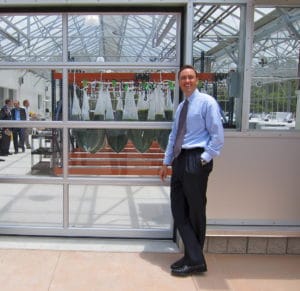
Our Moment on Earth – Part II
by Usha Aexander
[This is the seventh in a series of essays, On Climate Truth and Fiction, in which I raise questions about environmental distress, the human experience, and storytelling. It first appeared on 3 Quarks Daily. This seventh essay is divided into three parts. Part I is here. The sixth essay in the series, called “Modern Myths of Human Power”, is here.]
Tales of Techno-Optimism
Our world is thick with stories. Gods. Devils. The Invisible Hand of the Market. Original Sin and Salvation. Karma and Kali Yuga. Progress and Liberty. The Enlightenment. Manifest Destinies. Nationalism. Racism. Patriarchies. Capitalism. Consumerism … to name but a few of the grand or enduring narratives. These subtexts silently buttress the more mundane or transient tales we also tell. Some of these narratives are exceedingly common and adaptable, able to assimilate – or inspire – new vernaculars and references across time, place, and shifting fashions. Some have waxed or waned in their explanatory power and usefulness over time, as human societies have fundamentally changed.
Among the most wide-reaching, contemporary stories are the ubiquitious, high-strung fables of techno-optimism. Techno-optimist stories are told and retold by the Rex Tillersons of the world, amplified too by neo-environmentalists, by Silicon Valley and Hollywood, by scientists and politicians. They’ve been taken up by ExxonMobil and other extractive capitalist ventures, after the long-running “climate-change denial” saga lost its plot in the growing stream of contrary stories from lived experience. Fortunately for the corporate behemoths, techno-optimism grows well in the narrative soils laid deep by older stories of human progress, as told by a broad range of storytellers, from the now unfashionable “Social Darwinists” to the Evangelical Christians to the creators of Star Trek and popular comic-book superheroes.
They assure us that everything only keeps getting better, thanks to the Divine Spark of our human ingenuity, so that any and all problems can be solved with more or better human invention. There is virtually no challenge too great for our godly brains to overcome. There are no limits to the potential growth of human health, happiness, welfare, wealth, or power. In the past fifty years, most people in the world have been healthier and wealthier than in the previous thousand years – the shallow frame in which we make such comparisons. And if you measure human thriving by growth in GDP or a related economic measure – or even by other amazing advances in human ability: scientific knowledge, medicine, computing power, communication – the narrative lines up very neatly with the lived experience of a lifetime, too. This has further deepened our investment in the conventional wisdom that the recent decades are the best guide to future expectations.

Last year, ExxonMobil put out a series of charming Miniature Science web ads bolstering techno-optimism around climate change concerns. The ads feature cool experiments carried out using doll-house lab equipment and set to bouncy circus music. One ad, for example, demonstrates the miniature manufacture of algal biofuel as a low-carbon substitute for fossil fuels. Climate-change solutions are so easy, they’re like child’s play! the add seems to chirp. We needn’t worry ourselves about the future; we can just carry on, and let the good people of ExxonMobil tinker a bit – it’ll be fun!

Never mind that ExxonMobil actually makes only a nominal investment in alternative fuel technologies, while they continue to base their business nearly exclusively on further fossil fuel extraction. Or that algal biofuel production isn’t even low-carbon enough to get the world to zero emissions. Or that – at non-miniature scales – the algae requires so much land area to produce, it’s neither economically nor environmentally feasible. In fact, the ads are simply yet another greenwashing campaign designed to misdirect our gaze while the robber-barons go about their business of stealing our global future. But all that aside, Rex and Exxon tell a wonderful story. It’s the story we want to hear: optimistic, lighthearted, reassuringly based in technology, promising us no limits to our shining future – indeed, not even adjustment or inconvenience. Techno-optimistic tales promise hope and build expectations of stability. Institutional investors respond well to this, as do the politicians, the media, and the rest of us. So we prefer not to question them.
[End of Part II]
[Our Moment on Earth – Part III]

Usha Alexander was born to Indian immigrants who came to the United States in the 1950s and settled in the very small town of Pocatello, Idaho. She ran away to university at the age of 19, and later joined the US Peace Corps, where she served as a science teacher in the archipelago nation of Vanuatu. In the late 90s, Usha made her way to the San Francisco Bay Area of California, where she settled and worked for Apple Computer for many years.
Since 2013, Usha resides with her partner, writer and photographer, Namit Arora, in the National Capital Region of India. Usha has lived in four different countries and has learned to carry her home within herself, yet she frequently returns to the CA Bay Area with a certain sense of homecoming.